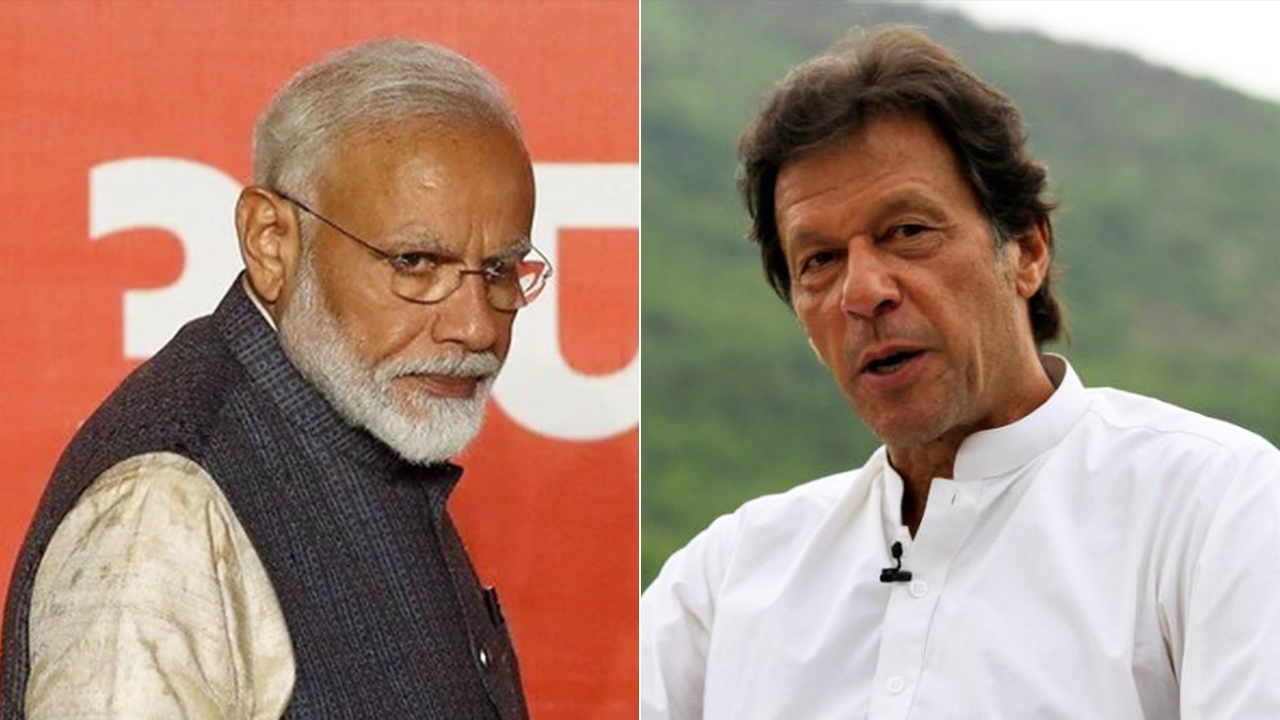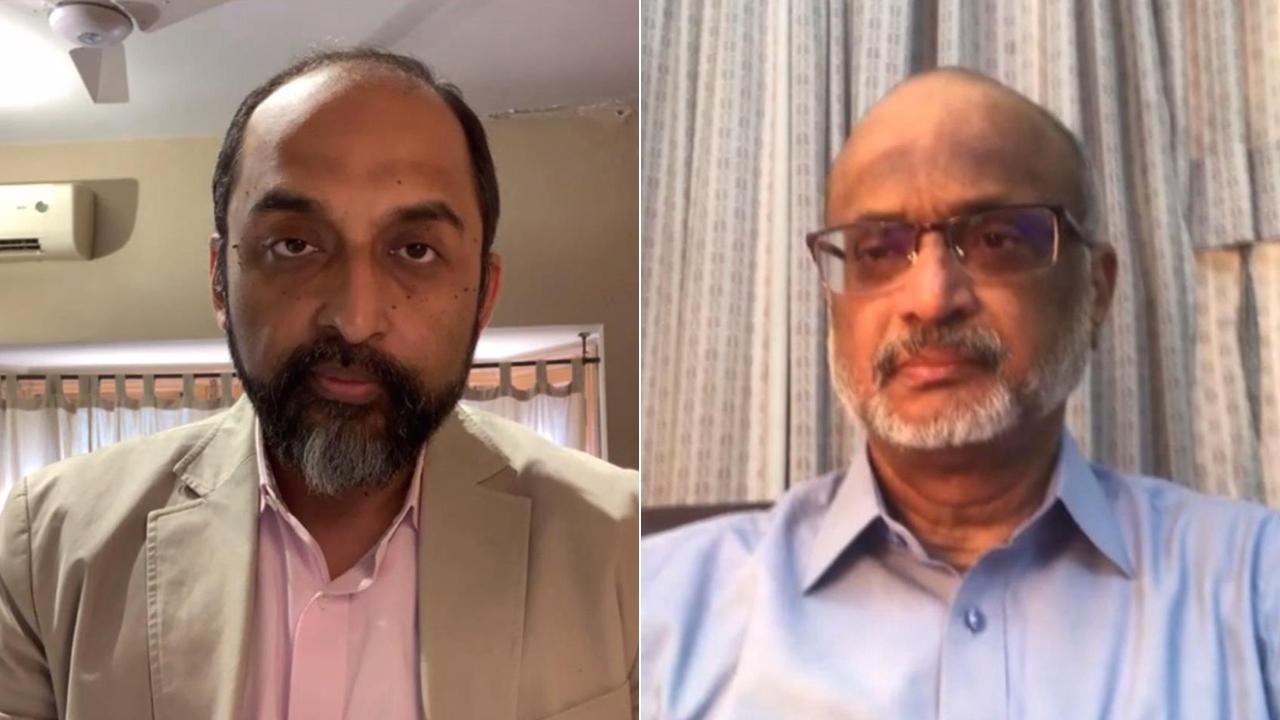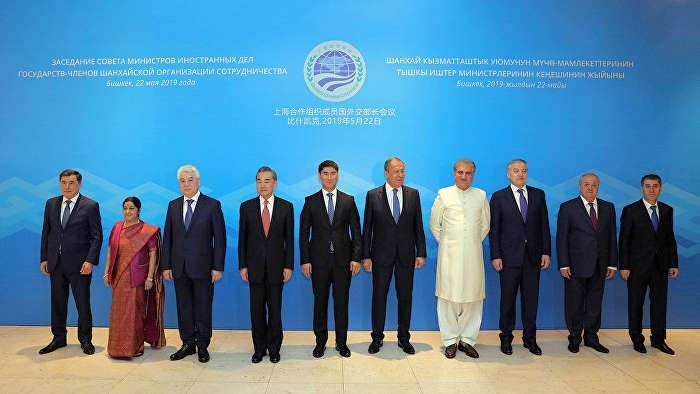

With the typically volatile India-Pakistan relations witnessing a prolonged freeze after the dramatic military skirmish earlier in February, the forthcoming annual summit of the Shanghai Cooperation Organization (SCO) in Bishkek may still offer a chance for the leaders of both countries to break the proverbial ice despite a one-on-one meeting not on the cards yet.
Indian Prime Minister Narendra Modi, who took office for his second term on May 30, is scheduled to attend the SCO summit in the Kyrgyz capital on June 13-14. The summit will also be the first for Pakistani Prime Minister Imran Khan after taking charge last August.
The South Asian neighbors became full members of the SCO in 2017, joining the bloc founded in 2001 by China, Russia, Kyrgyzstan, Kazakhstan, Tajikistan and Uzbekistan.
New Delhi has put bilateral dialogue with Islamabad on ice since 2016 over Pakistan's alleged support to militant groups in the Kashmir region. Modi and Khan have not met even once since the latter took office.
In April, however, Khan had expressed hope that a poll victory for Modi could ease the tensions, signs of which increased after both leaders exchanged pleasantries following the Indian leader's landslide re-election last month.
This prompted speculations over an impending meeting on the sidelines of the SCO summit but on Thursday, India's Ministry of External Affairs (MEA) asserted that "no bilateral meeting is being planned for now." A day later, Khan in a letter addressed to the Indian Prime Minister urged for a dialogue looking for a possible meeting in Bishkek.
According to news reports on Tuesday, Pakistan in a goodwill gesture has granted permission for Modi's aircraft to fly over its airspace to Bishkek for the SCO Summit, raising the hope the New Delhi might still respond to Islamabad's offer of a peace dialogue. The airspace was closed to Indian flights following the February military incident. However, Pakistan had allowed the former Indian foreign minister Sushma Swaraj to fly through its airspace to attend the SCO Foreign Ministers' meet in Bishkek last month.
India's MEA on Wednesday clarified that while the route via Pakistan was considered, Modi's aircraft will fly via Oman, Iran and other Central Asian countries to reach the Kyrgyz capital.
"I am very hopeful that Prime Minister Imran Khan and Prime Minister Narendra Modi will find a way to engage with each other and to give some positive proof to the ideals that helped form the SCO in the first place and certainly led to the inclusion of India and Pakistan in the SCO," Mosharraf Zaidi, a senior fellow at Islamabad-based thinktank Tabadlab, told CGTN Digital via Skype, still exuding hope that a meeting might just take place in Bishkek.
Meanwhile, M D Nalapat, director of geopolitics at India's Manipal University, wasn't so upbeat about the prospect of a summit. "So far as Prime Minister Modi and Prime Minister Imran Khan are concerned, personally I don't see much value in a summit meeting between the two for the simple reason that Imran Khan does not control the military. The [Pakistani] military controls policy on India. So it will simply be a photo opportunity," he said bluntly in the Skype interview.
Talk, trade and normal ties

Related story: Can the SCO be used to defuse India-Pakistan tensions?
Read also: Wang Yi says SCO can help improve India-Pakistan ties
Zaidi, a former policy advisor to Pakistan's foreign ministry, however insisted that the very purpose of including India and Pakistan in the SCO was to ensure that the South Asian neighbors not only talk with each other but even trade and cooperate on security issues benefiting the wider region represented by the bloc.
"We first have to explore the importance and the attention that Beijing and Moscow place on the SCO forum. When these countries invited and included Pakistan and India in this forum, there was a larger longer term vision to that inclusion," he said.
"And that was that whilst these two countries have legitimate quarrels with each other, these quarrels should not be a source of bitterness... These countries should be talking to each other and should ideally be trading with each other and cooperating on issues of joint security, global counter-terrorism and those sorts of areas," he elucidated.
While Nalapat, acknowledged that SCO is "an extremely important global entity," he also drew attention to India's traditional position that its relationship with Pakistan is a bilateral matter.
"I am very hopeful that the SCO will be a forum where economic development and the fight against terror come to the top of the agenda and from that point of view, I personally have very high expectations of this particular summit," he said.
"But so far as India Pakistan relations are concerned, that's entirely a bilateral matter and I don't believe that any other country has got a role. For many decades, the U.S. tried to play a role. For many decades, the European countries tried to play a role. And frankly, these are not well received by India," he remarked.
"Pakistan cannot wall itself out from India and hope to do well as an economy, or as a society, or as a polity. Therefore, it is in Pakistan's interest that it becomes a normal state and for that to happen, it has to ensure normal state-to-state relations with India. This is in the interests of Pakistan, it's in the interests of India and it's in the interests of those countries who are friends of both India and Pakistan," Nalapat stressed.
Security, prosperity and connectivity

Foreign ministers of SCO member states pose for a family photo during their meeting in Bishkek, Kyrgyzstan, May 22 2019. /Photo via SCO
Opinion: SCO – a turning point in Pakistan-India relations
Read also: Terrorism, security to top agenda of leaders' summit in Bishkek
Despite having divergent views on what role SCO should play in their bilateral relations, both New Delhi and Islamabad appear very positive about their own identity within the SCO and the role of the multilateral bloc in promoting regional peace and security in the long run.
"The SCO is an extremely important global entity. It's a very important global grouping. The SCO can play an important role because Russia, China and India, the three major powers in SCO, are all three victims of terror. And I do believe the SCO need to give a very strong message that any kind of encouragement to terror is wrong; that all forms of terror are bad; there has to be zero tolerance for terror," Nalapat said.
"Secondly, the SCO is a very important forum for prosperity. China is today a global superpower. It is by far the most important economy in the SCO. And it has very close trading ties with both India as well as with all the other members of the SCO," he remarked, adding: "So, I would expect that the SCO will pay a lot of attention to prosperity because eventually prosperity is the platform for stability and for harmony in society."
Meanwhile, Zaidi felt that the SCO is a great opportunity for "Pakistan's vision of itself as a trading hub, a hub for connectivity, a place that brings nations, peoples, civilizations and cultures together."
"The SCO is a great forum to promote that vision of Pakistan and I'm very hopeful that under the leadership of the various countries jointly coming together at the SCO, the SCO can prove to be an important instigator of a new kind of Pakistan," he quipped.
Zaidi suggested that international fora such as the SCO summit should be utilized by both the sides to devise a structure for a future summit. "The really important thing that needs to come before a person-to-person summit, is a process," he said.
"There are details in the Pakistan-India relationship that have to be talked about. Once those discussions get started, then a wider summit that covers more issues, goes into greater details and can deliver some low-hanging fruits, something that both countries can point to as a win, as an achievement, I think that is probably the path that talks between the two countries should take," Zaidi elucidated.
Ever since India and Pakistan were brought inside the SCO as full members, it has been hotly debated whether the two South Asian neighbors will shed their historic baggage of conflict and rivalry and learn to cooperate. Going by the rhetoric from both sides, the Bishkek summit will be a crucial test of this pragmatic hypothesis.
Interview and Voice-over: Abhishek G Bhaya
Video Editors: Lan Haowei, Ding Zhiyang, Zhao Yuxiang & Anosi Wang

Copyright © 2018 CGTN. Beijing ICP prepared NO.16065310-3
Copyright © 2018 CGTN. Beijing ICP prepared NO.16065310-3